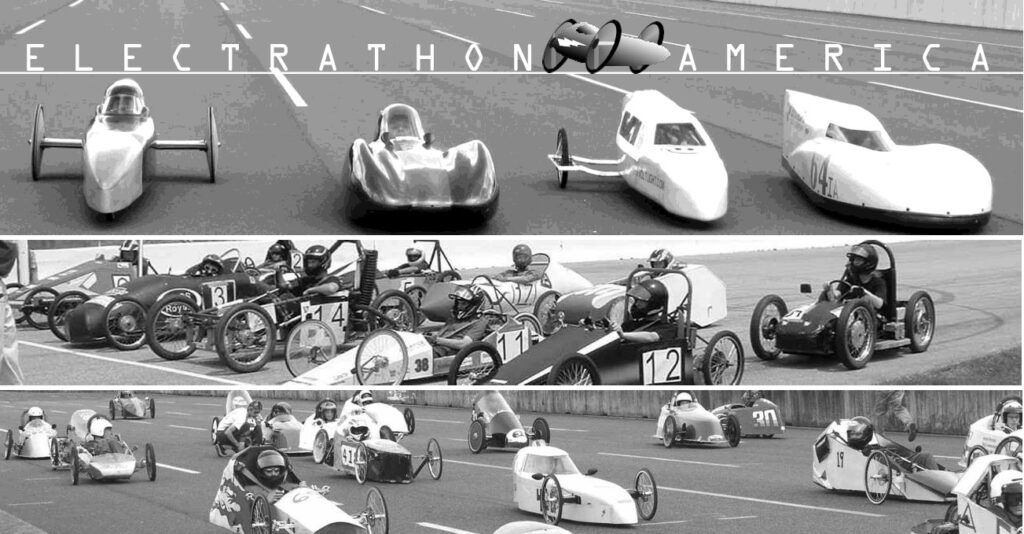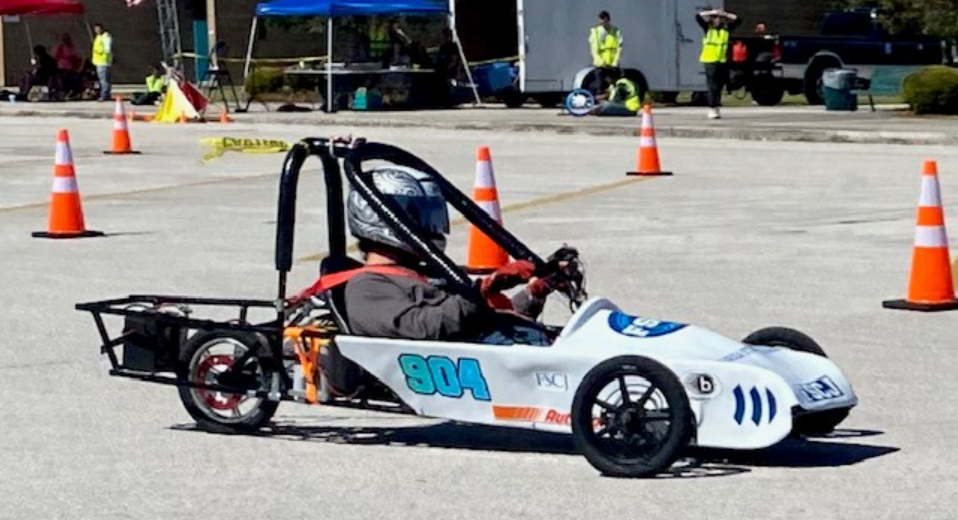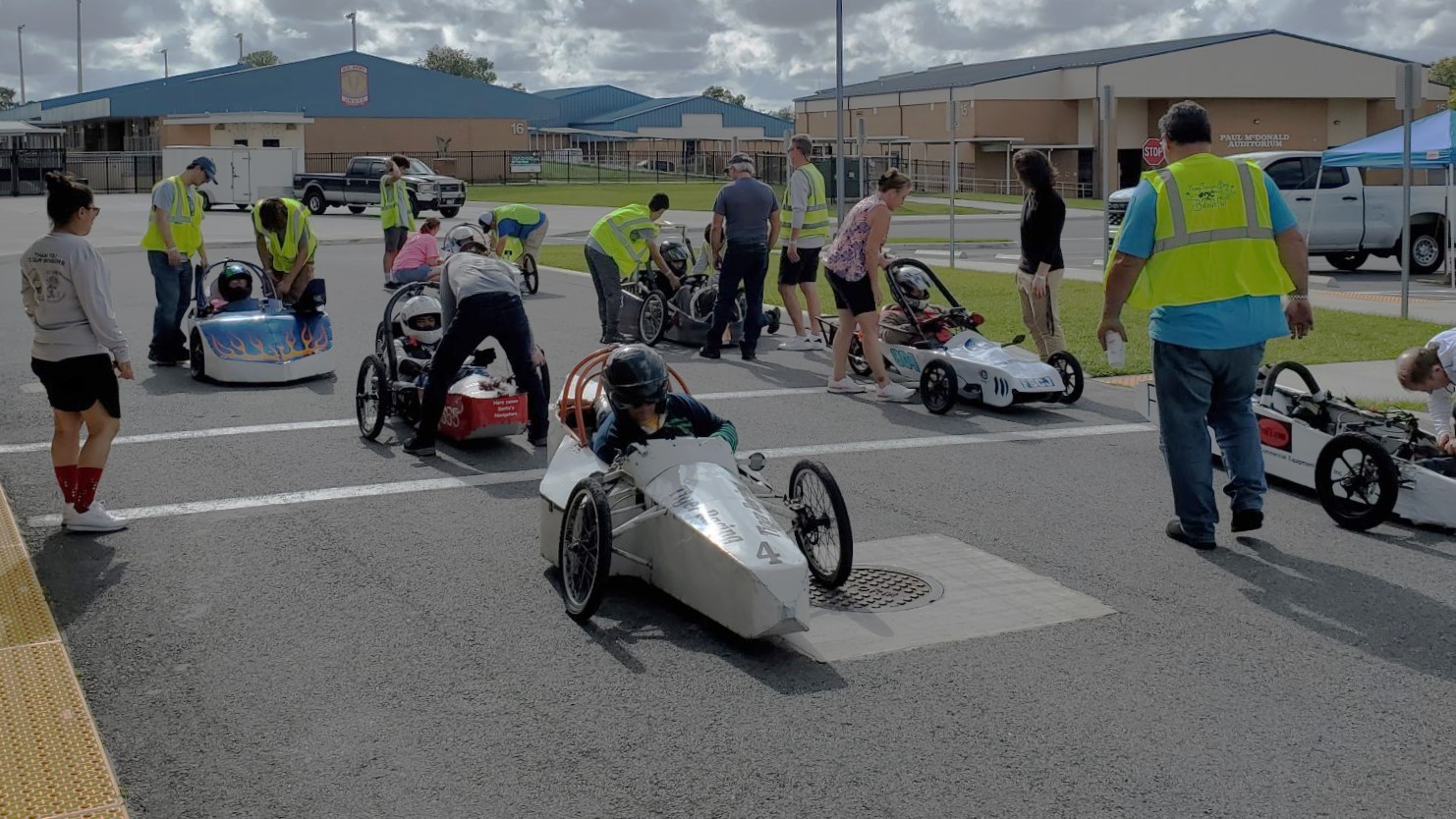The hum of battery-powered race cars built by high school and college students will buzz around Cecil Center at Florida State College at Jacksonville on Saturday as the next round of Electrathon racing zaps the campus.
The goal of the competitors of these single-seat electric race cars on a half-mile track circling the Westside campus is not speed, but outright distance — and going as far as they can on a charge.
The sleek little cars, rollbars protecting their helmeted drivers, get their firepower from rechargeable batteries feeding an electric motor. Among the teams competing in two races is FSCJ Student EV Battery and Electrathon Team’s No. 904 car, said Doug Brauer, FSCJ dean of engineering technology and industry.
“The draw for the students is being involved in the whole design and development process. They take turns driving this thing. It’s part of the learning experience; it’s part of the competition,” Brauer said. “To come out and see it as a spectator, I think the thing I enjoy is you see all the teamwork that’s taking place. It’s a very active, hands-on experience-based learning opportunity for them. And whether they win or not, they just have a lot of fun with it.”
The Electrathon America racing series was born in 1980 in California as a fun way to educate students about electric cars through hands-on design, fabrication and competition. Handbuilt, or from kits, the knee-high race cars riding on lightweight spoked wheels sometimes average only 15 to 20 mph on some winding courses they run. But on long straightaways, an Electrathon America vehicle was clocked at 62.1mph, organizers said.
FSCJ offers multiple automotive courses, from service management to collision technology, as well as working with the JEA to test autonomous vehicles at the Cecil Center campus. With so many students working on that transportation technology, Brauer said it was a natural to form an Electrathon team about a year ago.
The college joined with Electrathon of Tampa Bay/Florida to host Saturday’s race at Cecil Center. The track is composed of perimeter roads, made up of gentle long curves and four straights. Each race includes about a dozen race cars.

Two races will be held Saturday, the first at 10 a.m. and the second starting at 1 p.m. Racer registration costs $40. Participants can charge their twin-battery system with the 110-volt power available in the pit area three hours before the start of each race. Food trucks will present during the races.
Electrathon car designs vary, some using three wheels, others four. FSCJ’s team, led by adviser Robert Wechsler, is a reverse trike with its single rear wheel surrounded by bars. It can weigh no more than about 160 pounds, including two lithium batteries and its electric motor. Drivers must pace themselves so they get the most efficiency and distance — run too fast and “you are not going to last as long,” Brauer said.
The cost of vehicle parts and materials varies depending on where teams get frame material, motor type, batteries and other items, but can range from $2,000 to $5,000 depending on whether they are scratchbuilt or from a kit, Electrathon America says. The organization does offer a resources page.

“It can be three or four wheels,” Brauer said. “But other than that, it is just design your car and design it to last and do as many laps as possible. … They try to make sure all the cars are the same weight, and you may have to, depending on how big your driver is, actually add some weight to get up to where everybody’s about the same.”
There is also a Solar Class that allows a race car to use photovoltaic cells to provide additional power during a race.
The season’s third Electrathon Race will be Feb. 9 at the University of South Florida in Tampa.







